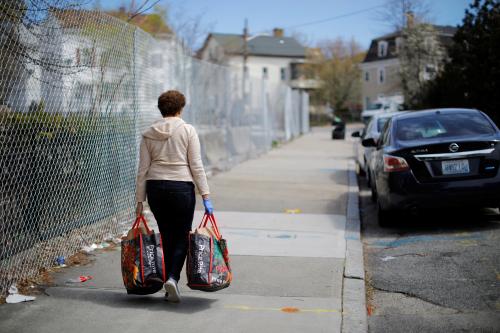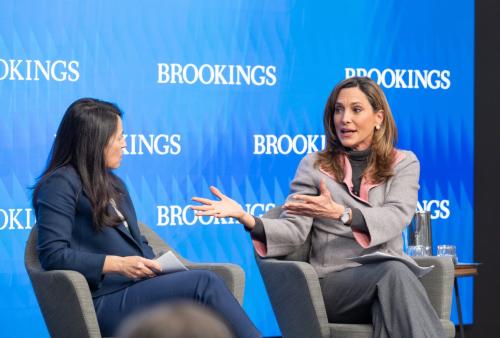Social distancing is dividing the nation – but not just in the obvious ways. Attitudes towards the value of social distancing among the people where it arguably matters most – essential workers – vary widely by party affiliation.
Gallup collected data from its Covid-19 tracking panel. These data have been analyzed at a county level by Gallup’s Jonathan Rothwell, who finds big differences between places where Donald Trump won in 2016, and where he lost. Here I focus on the overall political divide and explore differences between men and women. While respondents could identify as Republican, Democrat, Independent, or Other, I use only the first two categories for this analysis. The main conclusion is that among essential workers, there is a big political divide, but almost no gender divide. Because men are more likely to identify as Republicans than women, it is possible that the slight gender gap is exacerbating the greater partisan divide. While I cannot fully separate out this relationship, the similarities between genders within each party are clear.
Republican essential workers are much more skeptical that social distancing saves lives, with only 20% of Republican men and 40% of Republican women saying they are “very confident” it is effective, compared to 76% of Democrat men and 72% of Democrat women:
On the flip side, as the chart shows, very few Democrats are not confident that social distancing works (4% of both men and women), compared to much higher proportions of Republican essential workers (36% of men, 20% of women).
Gallup also collected data on reported changes in behavior among essential workers. Here too there are partisan divides. Democrats are more likely than Republicans to say they are “always trying to maintain at least 6 feet of distance with others”, more likely to have “made changes to their job to avoid catching or the spreading virus”, and more likely to say they are “always using personal protective equipment”. Again, any slight gender divide on these behavioral questions is hugely outweighed by the political divide:
These differences are echoed in perceptions of the risk of exposure to Covid-19. Democrats are much more likely than Republicans to report that they are “concerned or very concerned about getting COVID-19”, with no significant differences by gender within partisan categories. But this is also likely to be a matter of geography. Democrat essential workers are also much more likely than their Republican counterparts to live in a city or suburb:
Of course, there are many factors at work here – not only geography, but also occupation, race, immigration status, and so on. But one clear conclusion from the Gallup data is that there are no real differences between men and women in terms of either attitudes or behavior with regard to social distancing, at least among essential workers. This is important information especially given some evidence that men may be engaging less in social distancing behavior. The partisan gap, by contrast, is striking, and potentially troubling as the nation gears up to re-open. The attitudes among essential workers may be broadly shared among others with the same political leanings. This may influence how the pandemic develops in the months ahead.
Hannah Van Drie provided research assistance for this article.
The Brookings Institution is committed to quality, independence, and impact.
We are supported by a diverse array of funders. In line with our values and policies, each Brookings publication represents the sole views of its author(s).






Commentary
Among essential workers, big partisan divides in attitudes on social distancing
May 27, 2020